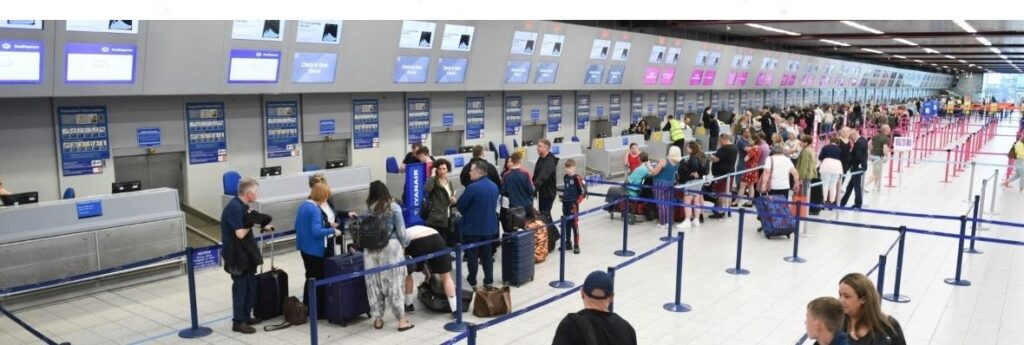A new study by Blue Cross says Canadians are still eager to travel and, buoyed by an optimistic attitude are finding creative and cost-efficient ways to do so in the face of rising – and the perception of rising – prices.
The just-released Blue Cross Travel Study says Canadians spent an average of $4,200 on their last vacation and, despite some evidence to the contrary (e.g. StatsCan reported this week that airfares in Canada have been steadily declining for months), that 94% feel the cost of travelling is increasing.
However, the study also reveals that more Canadians are feeling optimistic about travel and are planning more trips this year.
“Canadians are finding creative ways to continue to enjoy travel while staying on budget, including staycations and domestic travel,” says Tim Bishop, Managing Director, Blue Cross of Canada. “When planning trips for 2024, travellers may also consider booking flights and accommodations a few months in advance and purchasing travel insurance to avoid unexpected costs.”
While inflation was a barrier to travelling, with over two-thirds (69%) of Canadians saying that it impacted their travel plans in 2023, Canadians still plan to make travel a priority this year. In fact, close to eight-in-10 (79%) say they are planning a trip outside their province or territory in 2024, up 10 percentage points from last year.
This is likely since nearly all Canadians (96%) recognize the benefits of travelling, such as being able to recharge, reducing burnout, and improving mental health.
Travel stress is down, but disruptions remain
After a turbulent return to travel last year when disruptions dominated the headlines, travellers are feeling more at ease this year. Travel-related stress is down 41 percentage points, as less than half (48%) of Canadians said they experienced some form of travel stress, compared to 89% in 2023.
“While it’s great to see a decrease in travel stress, we know Canadians continue to deal with travel-related issues,” warns Bishop. “In fact, 58% of Canadians said they have experienced a travel-related incident and for the second year in a row, cancelling or changing a flight, and lost or damaged baggage were named as the top travel-related incidents…”
Interestingly, young Canadians are more likely to experience travel disruptions. Just over three-quarters (78%) of Gen Z and 64% of Millennial travellers said they have experienced a travel-related incident compared to just over half of Boomers (56%). This may also be contributing to higher levels of stress, as 54% of Gen Z and 58% of Millennials find travel stressful, compared to 39% of Boomers.
Young Canadians underestimate the true costs of travelling without insurance
Considering the potential for travel-related incidents, most Canadians (87%) recognize the risks of travelling without insurance and many (57%) purchase a policy at least occasionally. Younger generations, however, are more likely to roll the dice. Nearly half (47%) of Gen Z travellers who never purchase insurance say it is because they don’t think anything bad will happen. Further, they underestimate the actual cost of emergency medical care more than any other generation.
“Insurance could be viewed as a form of digital currency,” says Bishop. “For a typical Millennial traveller visiting the US, an insurance policy costs the same as a daily cup of coffee, while a single night in a US hospital can easily be thousands of dollars.”
Canadians are finding creative ways to travel in 2024
Canadians are exploring new forms of travel, with ecotourism and solo travel on the rise. Most Canadians (82%) cite an interest in ecotourism and over one-quarter of Canadians (26%) have either taken or are currently planning an ecotourism vacation. More Canadians are opting for solo travel, as half travel alone, at least sometimes.
Younger Canadians are especially keen to adopt these new travel trends. Many Gen Z travellers (55%) see ecotourism as an opportunity to have a more meaningful travel experience, and 47% have taken or are planning an ecotourism vacation, compared to just 17% of Boomers. Gen Z are also more open than their older counterparts to the possibilities of combining remote work and travel by temporarily working from a new destination: 50% of Gen Z have or are planning to move provinces/territories or countries for a few months, compared to 38% of Millennials and just 12% of Boomers.
To see the study, click HERE.

